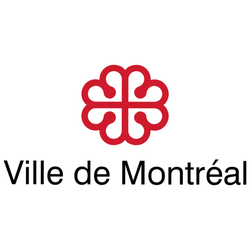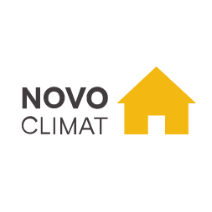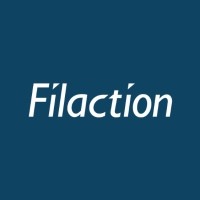
Affordable Housing Renovation Program
At a glance
- Maximum amount : 575,000 $
- Up to 45% of project cost
- Unspecified
- Real estate and rental and leasing
- Montréal
- Non-profit
- Public or Parapublic institution
- For-profit business
- Non-financial cooperative
- All revenue ranges
- All organization sizes
- All groups
- Economic, Social and Community Development
- Housing
- Low-income individuals / families
- All structures
- Municipal
- Provincial
Overview
The "Réno logement abordable" program, co-financed by the City of Montréal and the Société d’habitation du Québec, aims to support the renovation of affordable housing units, with the maximum funding amount for a building being $289,800. Eligible activities include structural, electrical, fire protection system upgrades, and related architectural and engineering fees, provided they are incurred after the submission of the work program.
Activities funded
This grant supports the renovation of affordable housing to ensure safe and affordable living spaces in Montréal. Eligible activities focus on necessary structural, exterior, and safety improvements to residential buildings.
- Structural repairs and rehabilitation to enhance building safety and integrity.
- Renovation of building exteriors, including envelopes and openings.
- Updating electrical systems to meet modern safety standards.
- Installation or upgrading of fire protection systems.
- Professional fees for architecture and engineering services related to eligible renovations.
Eligibility
Eligibility for this grant is determined by specific requirements related to the property and application details.
- The applicant must be the owner of the property or have a legal mandate to act on behalf of the owner.
- The property must not be associated with institutional uses such as religious or educational facilities, detention centers, or student residences.
- The property must not have an exclusively commercial purpose or primarily serve transient clients, such as hotels or motels.
- The building should not be owned or leased by federal or provincial authorities or their agencies.
- The property must not be occupied exclusively by health and social services entities or linked resources.
- The property must not have received a previously approved grant for which the right to the subsidy was lost, unless 12 months have passed since the notice of subsidy loss.
- At least 33% of the dwelling units must be affordable according to criteria set by the City of Montreal.
Who is eligible?
The "Aide financière Réno logement abordable" grant, funded by the Société d'habitation du Québec (SHQ) and the City of Montréal, is open to property owners looking to renovate their buildings with affordable housing units. Specific eligibility requirements include owning the building, having a minimum of 33% affordable housing units, and complying with all documentation and process requirements outlined by the City of Montréal.
Who is not eligible
This grant has specific exclusions related to the type of building and its intended use. The restrictions are set to ensure the program supports the intended residential renovations without diversion to other institutional or commercial uses.
- Buildings where residential units are accessory to institutional uses, such as seminaries, novitiates, convents, and student residences.
- Buildings used exclusively for commercial purposes targeting transient clientele, such as hotels and motels.
- Properties owned, leased by, or managed by the federal or provincial Crown.
- Properties occupied by establishments covered under the Health and Social Services Act.
- Buildings utilized by resources associated with public health establishments for accommodation purposes.
- Buildings that have previously received a grant approval but lost eligibility less than 12 months prior to a new application.
Eligible expenses
The grant covers specific expenses incurred after the dispatch date of the work program related to eligible renovation activities.
- Professional fees for planning and executing eligible renovation work, including the development of preliminary and final plans and specifications, cost estimation, bid analysis, and construction oversight.
- Certification fees indicating the completion of eligible work to recommend payments.
- Expert fees for identifying or qualifying issues affecting a component involved in eligible work, such as engineering or fungal contamination expertise.
- Development of a pest management plan, execution of extermination, and drafting of an intervention report.
- The portion of permit fees related to eligible work.
- Public domain occupancy fees during the execution of eligible work.
Selection criteria
The evaluation and selection of projects for this grant are based on specific criteria, primarily focusing on the physical condition of the building as assessed by city inspectors.
- Condition of the building: assigned a score from 1 (excellent condition) to 6 (very poor condition), where projects scoring 3 or 4 are prioritized for eligibility.
How to apply
Preparation of the necessary documents
- Obtain the document proving ownership of the building or an accepted purchase offer.
- Prepare the mandate for anyone acting on behalf of the owner, if applicable.
- Gather all available plans, analyses, estimates, and submissions.
- Obtain a copy of the current leases to prove that at least one-third of the units are affordable.
- For a cooperative or a non-profit housing organization, draft a letter from the authorized representative regarding a request for government assistance.
- Gather all recommended supporting documents, including the sworn declaration and the inspection authorization from the City.
Submit the request
- Fill out the application form provided by the City of Montreal.
- Pay the application review fees according to the number of housing units.
- Submit all required documents to the office of the director of the Housing Service.
Request Tracking
- Wait for a possible request for additional information from the director.
- Prepare and send the additional information if requested.
Additional information
Here are additional relevant details for this grant:
- The grant is subject to city inspection and approval processes, with the requirement for building inspections to prove eligibility.
- Applicants may need to provide detailed documentation of compliance with affordable housing criteria and regulations.
- Grant recipients must comply with all post-approval conditions, such as maintaining the affordability standard for a specified duration.
- If any changes in building usage or ownership occur within 36 months of receiving the grant, there may be obligations to repay the received grant amount.
Contacts
Frequently Asked Questions about the Affordable Housing Renovation Program Program
What is the Affordable Housing Renovation Program?
How much funding can be received?
Who is eligible for the Affordable Housing Renovation Program program?
What expenses are eligible under Affordable Housing Renovation Program?
Who can I contact for more information about the Affordable Housing Renovation Program?
Where is the Affordable Housing Renovation Program available?
Is the Affordable Housing Renovation Program a grant, loan, or tax credit?
More programs like this

Financial support to assess your energy use Hydro Quebec
Hydro-Québec
Novoclimat — Construction professionals — Small Multiple-Unit Buildings
Gouvernement du Québec
Regions and Rurality Fund (RRF) - Component 1 - Support for regional outreach
Gouvernement du Québec
Trois-Rivières — Real Estate Heritage Restoration Program
City of Trois-Rivières
Trois-Rivières — Affordable Housing Development Support Program
City of Trois-Rivières
Trois-Rivières — Redevelopment of the first neighborhoods – Stream 2: Renovation of heritage buildings
City of Trois-Rivières
Startup in residence
Desjardins
Programme d’habitation abordable Québec - Volet 2 : Projets pour personnes ayant des besoins particuliers en habitation
Quebec Housing Society (SHQ)
Trois-Rivières — Revitalization of commercial arteries in the city's oldest neighborhoods – Stream 1: Renovation of commercial storefronts
City of Trois-Rivières